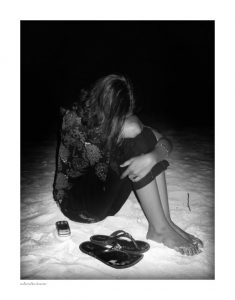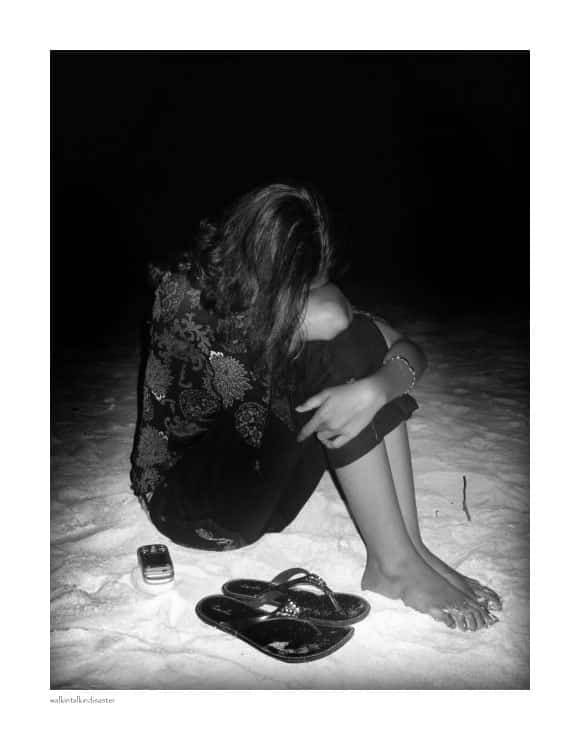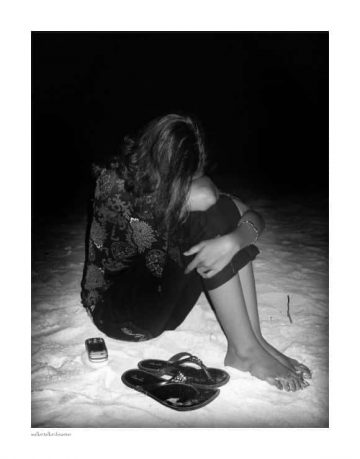
I found photos on our home computer one night when I was searching for some pictures of the kids–they showed my husband and another woman on vacation together, clearly enjoying themselves.
That night he confessed that he’d met up with her several times for professional conferences and he begged for forgiveness, ensuring me that he would never let it happen again. I believed him because of the sincerity of his forgiveness, but of course I insisted that he confess to the Bishop so he could make things right with God. It was then that an already-awful experience became even worse for me.
The bishop and my husband worked out a plan together for him to forgo the sacrament, to meet weekly for counseling, to read the scriptures, et cetera. The Bishop called me into his office and explained to me that I must never tell any of my family members or friends about what had happened, because it would tarnish my husband’s reputation. My bishop explained that my husband’s repentance process would go much more smoothly if no one else was aware of the circumstances.
While perhaps that was good advice that benefited my husband, it did not help me. He took the car to work every day while I was home tending our young children. We lived far away from family. We were in a neighborhood in a weird far-off corner of the ward where no other LDS families lived. Most of the time I was alone all day with the kids and alone all evening with the kids (he often worked late). I became more and more isolated and the fears built as I rehearsed over and over in my mind the images that I’d seen on our computer.
After a few months of growing depression and loneliness, I went to the bishop by myself and explained that I was depressed, had lost 30 lbs, and sometimes burned and cut myself. I asked if he could help me find some counseling. I knew we didn’t have the money to afford it ourselves, but hoped that the bishop would be able to give me a referral to someone who could help me find some hope again.
Instead, he told me that I should call him if I ever felt sad or felt a need to self-injure. He did not offer any professional counseling and reiterated that I should not share what I’d been through with my husband or with anyone else.
The months after that are pretty blurry for me now, and the story has a fairly-circuitous-but-eventually-happy-ending which includes divorce, remarriage, and gaining a strong feeling of self-worth.
The recent #metoo movement has had me looking back on some of what happened all those years ago and how shabbily I was treated not only by my husband, but by my bishop. That bishop supported my husband’s repentance process, left me to suffer alone, and caused me years of unnecessary anguish and depression.
I suspect that there are many other women in that ward who were given this same counsel, by this same man, and who desperately needed help and were not given it. It’s some comfort to know that women in crisis can now choose to have another woman with them when they meet with the Bishop. At least that means that they will never be as alone I was. I suspect that if I had had an ally at my side that she might have stressed the need for the bishop to get me help, too.






10 Responses
That is so sad! The bishop was wrong to tell you not to tell your family members. No one should be feeling alone during this difficult time. I think it would have been all right to tell your close family members so that they could support you. Thank you for sharing your story.
In my experience, the church is good with helping the sinner with repentance, but worthless in helping the sinned against with healing and eventual forgiveness. The bishops have the sinner read scriptures, bla bla bla bla, But as far as specific restitution to their victim, nothing. As if the sin harms only the sinner. The sinner is required to impress the bishop with his sincerity, but not to earn back the trust of those hurt.
This overlooking of the sinned against leaves those who were injured suffering and alone with no one to talk to, while the sinner works closely with leadership and is constantly assured that God cares about them. While the injured party is abandoned.
Thank you for being willing to share your story. It is horrific to hear how your bishop isolated and abandoned you in your pain while privileging your emotionally abusive husband and his feelings. This is a clear example of a pattern of LDS priesthood leaders identifying with an abuser of their same gender. If women were ordained and put in positions to support women and children, this pattern would not be so prevalent. Lives would be saved. I’m so glad you got out of an abusive marriage and that your story has a happy ending! Thanks in no part to the LDS Church’s patriarchal system.
UGH, I hate how familiar this is:
“The Bishop called me into his office and explained to me that I must never tell any of my family members or friends about what had happened, because it would tarnish my husband’s reputation. My bishop explained that my husband’s repentance process would go much more smoothly if no one else was aware of the circumstances.”
If I had a nickel for every time I’ve heard of a bishop silencing a woman to protect a man’s reputation, I would have thousands of nickels. When are we going to see women’s pain as equal to (or more important than) a man’s reputation??
This post twisted my heart, and this was the most painful part for me. I’m trying to salvage my marriage after infidelity (his, not mine) and I feel like keeping it secret protects him from bearing the weight of his offense, and puts that weight on me. I haven’t received this instruction from my bishop because we haven’t consulted him, but it’s such a widespread default that I’m grappling with this BS. Our therapist has cautioned me against sharing it with our children and families, but I feel like, at the very least, my husband should recognize the added unfair burden it puts on me. The theoretical bishops’ training should include this. Although, if they cared about both victims and bishops, they’d get bishops out of the counseling business as much as possible. This level of problem should be handled by professionals.
Several women have told me of priesthood leaders instructing women to keep secret the trespasses, and in some cases, crimes, committed against them. I think a big part of the problem is that since all priesthood leaders are male, and the LDS Church goes to such lengths to segregate women and men by gender, they know the men better and empathize with them more.
Another problem is the “widely known” clause in church discipline policy. This very dreadful policy requires more strict discipline for sins that are “widely known.” This creates perverse incentives for priesthood leaders to encourage secrecy to avoid being forced to hold Disciplinary Councils. It is particularly unjust to women in Law of Chastity cases–a pregnancy quickly becomes widely known for the woman, but Mormon men who violate the law of chastity have the option to evade severe discipline if their sins are not “widely known.”
To echo April above, your experience to me is just an obvious argument for the Church to ordain women and give up on an all-male priesthood. Male leaders are almost always going to have an easier time sympathizing with men, and so they’re going to give bad advice like yours did to keep your husband’s sins secret to protect his reputation. What an absurd thing for him to demand! What messed up priorities! I’m sorry that you were subjected to this.
‘@Anna, that is an excellent observation!